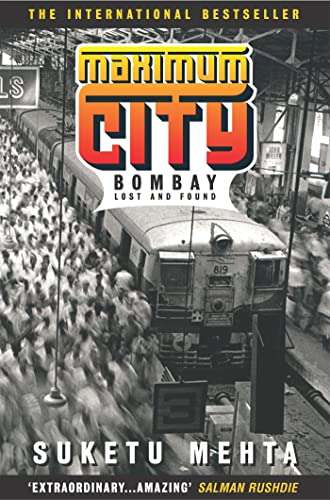Published by Headline Books, 2005, 593 pages, condition: new. An international bestseller upon publication, MAXIMUM CITY was a finalist for the Pulitzer Prize and remains a classic study of the metropolis of Bombay. 'If there's been a more striking snapshot of the changing face of Asia, I've never read it' Sunday Times
The complex texture of these extraordinary tales is threaded together by Suketu Mehta's own history of growing up in Bombay and returning to live there after a 21-year absence, and in looking through the eyes of his found the city within himself.
Part memoir, part journalism, part travelogue, and written with the relentless observation and patience of a novelist, Maximum City is a brilliantly illuminating portrait of Bombay and its people - a book as vast, diverse, and rich in experience, incident, and sensation as the city itself.
As someone who grew up in the 90s in Mumbai, I lived in my middle class bubble, broken only by the riots and the rampant street sexual harassment. I watched the city take a rebirth with a new name, just one of a re-naming spree around the country. But though I knew that there were things going on, they were just somewhere out there and nothing to do with me. With Maximum City, Suketu Mehta brings those 'things' right under your nose making them hard to ignore.
Maximum City is about the shadow world of Mumbai, the place where politicians and gangsters, filmmakers and dance bar girls, the police and the public, all gather to feed off each other's negative traits. The book is divided into three parts. The first deals with power - namely, the hold of Shiv Sena, Mumbai's political and labour history, as well as the corruption in the police force. The Mumbai riots of 92 and the complicity of the political parties as well as the police was investigated and presented in detail. The gangsters, the gang wars, and their interplay with politicians and the police is also explored. This was a fine work of investigative journalism and Mehta took risks as he cavorted around with gangsters and policemen. I read some negative reviews of the book by other Indians, and it was amusing to see how they were all about how Mehta was against Hinduism and India. Well, the underworld was strong in the 90s and there was religious discord. They were tough times. Deal with it! Living in an elite bubble doesn't make Mehta wrong or negate those lives which were lived under these circumstances.

